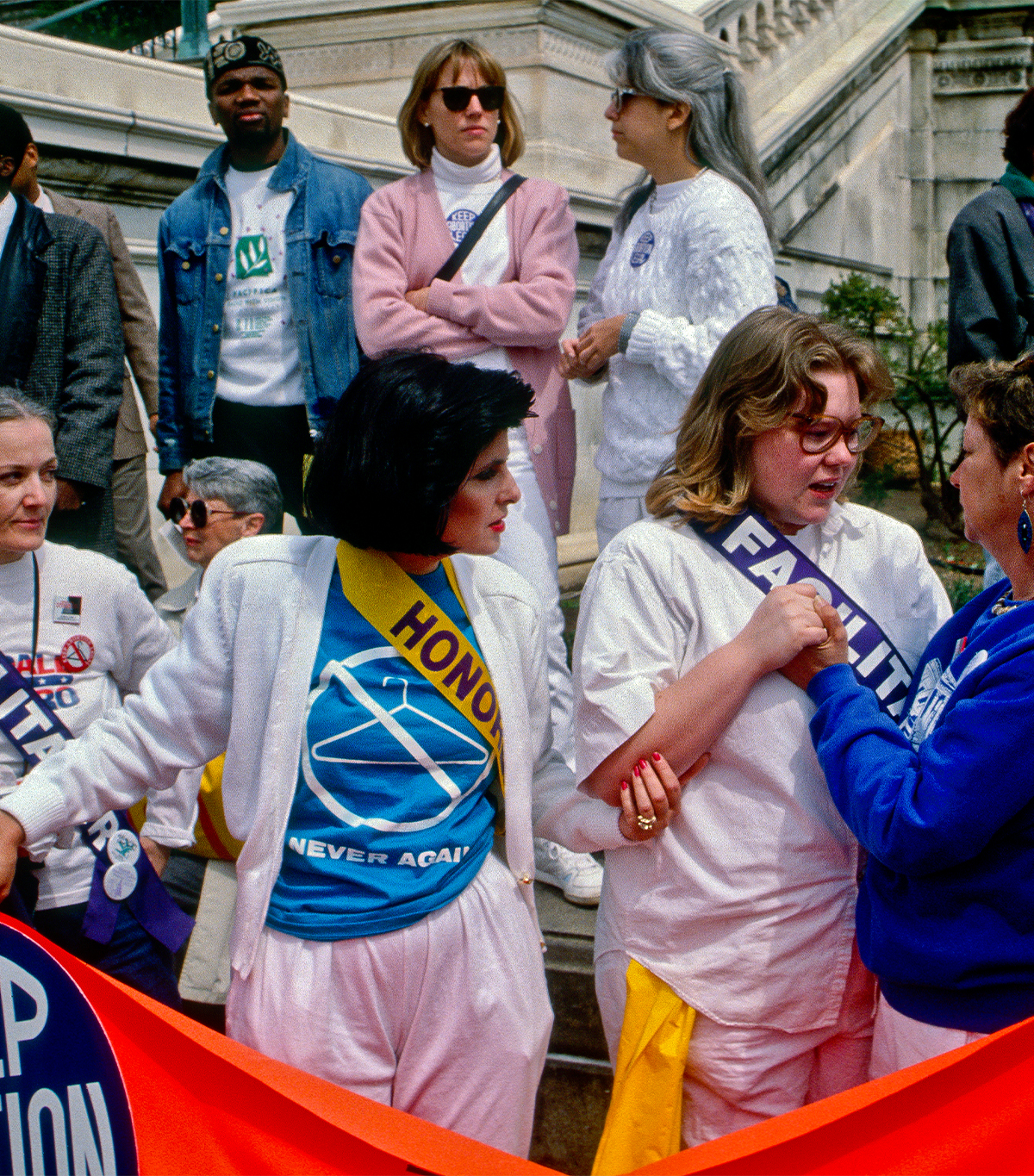
Today, the United States is regressing nearly 50 years. The unthinkable has happened—Roe v. Wade has officially been overturned, and women have lost bodily autonomy in the United States. Abortion will now likely become illegal or severely limited in roughly half of the U.S., and it is now immediately illegal in the 13 states with trigger laws, which were in place to ban abortion the second Roe v. Wade protections ended.
Many of us have mothers and grandmothers who fought for abortion access before us, and now, our generation is faced with its own fight. It’s important to remember that even if abortion access is restricted or made illegal, that won’t put an end to abortions—instead, it will put an end to safe abortions.
As a publication dedicated to championing women, we are devastated by the news. We’re facing a long, uphill battle with no quick fixes in sight, but if you’re also upset and want to take action, we’ve pulled together resources for you to use as jumping-off points. If you’re able to, consider donating to local reproductive rights and abortion funds in the states that will have immediate bans, as well as supporting national efforts. Here are the places you can do that.
Alabama, Mississippi, and the Deep South: The Yellowhammer Fund provides access to reproductive care for people in need in the Deep South, including abortion funding, travel and lodging support, emergency contraceptive access, referrals to local medical services, and more.
Mississippi: The Mississippi Reproductive Freedom Fund offers services to all Mississippi residents, even if they don’t seek an abortion in Mississippi. This fund offers financial assistance and practical care to people seeking abortions.
Missouri: The Missouri Abortion Fund provides financial assistance to people who cannot afford the full cost of an abortion.
North Dakota: The WIN Fund provides grants to eligible people in North Dakota to help reduce the cost of abortion services. This fund is aimed to help people who would be otherwise unable to obtain an abortion and assists with transportation, lodging, childcare, and more.
Oklahoma: Roe Fund of OKRCRC gives financial assistance to people seeking abortions in Oklahoma. This fund also has volunteers who help support patients by acting as clinic escorts.
South Dakota: The Justice Through Empowerment Network works to provide support for people seeking abortions by funding abortions and helping with lodging, transportation, childcare, interpreters, and more.
Tennessee: The Mountain Access Brigade is a volunteer-run abortion doula collective and fund. It aims to help Tenessee residents obtain accurate abortion information, emotional support, practical support, and financial assistance.
Texas: In Texas, ActBlue has set up a donation page that’s split between 10 abortion funds. You can choose to donate evenly between them or support them individually.
Utah: The Utah Abortion Fund provides financial and practical support for people in Utah seeking abortion care.
Wyoming: Chelsea’s Fund gives Wyoming residents information on abortion providers and offers financial assistance for those who need it. If they are able to offer assistance, they notify the clinic and pay them directly.
Arkansas: There is only one procedural abortion clinic in Arkansas. The Arkansas Abortion Support Network provides direct financial and logistical assistance, which is particularly vital in a state with so few options.
Idaho: The Northwest Abortion Access Fund grants money to hotline callers in Washington, Oregon, Idaho, and Alaska, which cover procedural and logistical costs.
Kentucky: The Kentucky Health Justice Network offers people seeking abortion financial assistance, transportation, interpretation, and more.
Louisiana: The New Orleans Abortion Fund offers funding and resources for anyone seeking an abortion. Its hotline is also open to anyone in the Gulf South, and they’re reachable at 844-44-ABORT.
Women’s Reproductive Rights Assistance Project (WRRAP): WRRAP is the largest national, independent, nonprofit abortion fund available. They provide financial assistance to those seeking an abortion as well as providing funds directly to pre-screened health clinics and doctors.
National Network of Abortion Funds: This all-encompassing list connects you with abortion funds specific to certain states. Each fund helps support the specific needs of the community it serves.
National Women’s Law Center: The National Women’s Law Center is made up of experts, advocates, and lawyers that fight for women’s rights through policy and the courts.
National Abortion Federation: Every donation to the National Abortion Federation supports abortion providers. NAF member clinics ensure that there is enough access to abortion care in places that need it most.
Planned Parenthood: Planned Parenthood provides abortion care for anyone who may need it, regardless of age, gender identity, immigration status, or ability to pay.
Indigenous Women Rising: Indigenous women in the U.S. have an even harder time than most getting a safe abortion—and they are more than 2.5 times more likely to be raped or sexually assaulted than any other ethnicity in the United States. The Indigenous Women Rising abortion fund is open to all indigenous women seeking an abortion.
The Brigid Alliance: The Brigid Alliance is a one-stop shop for helping people obtain abortion access. The Alliance will book, coordinate, and pay for travel, travel expenses, and childcare for everyone who needs an abortion.
Just the Pill: Just the Pill allows people seeking abortions to order abortion pills online to take in the comfort of their own home. It offers financial support for those who need it.
